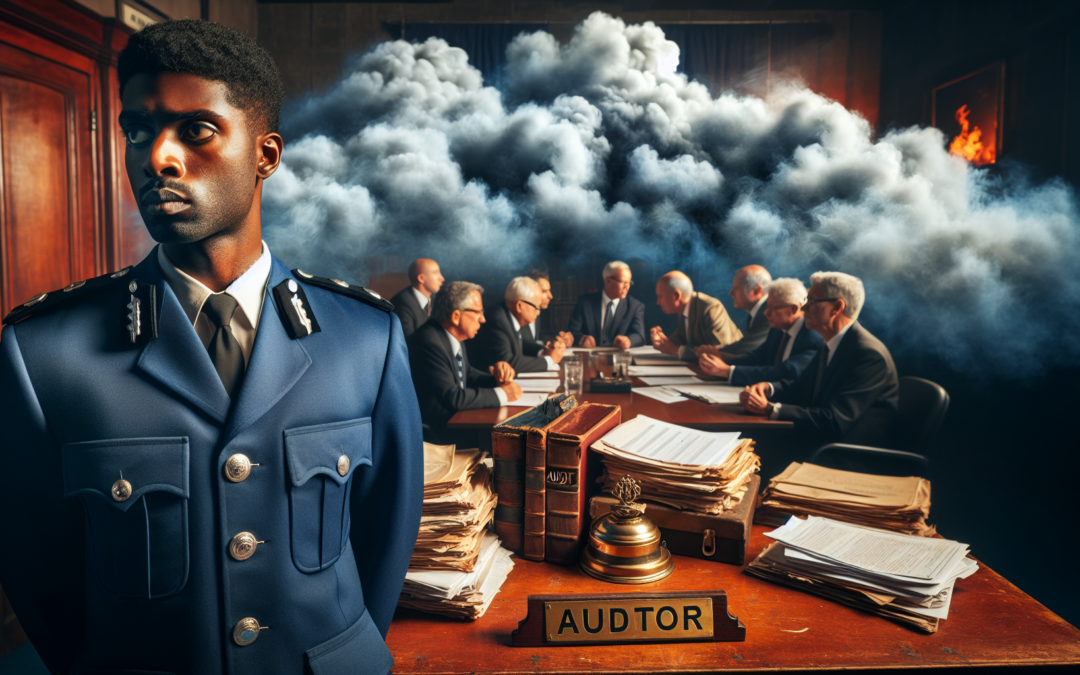The Impact of First Amendment Auditors on Law Enforcement
Law enforcement officers walk a narrow, perilous path, flickering under the duress of high expectations and immense challenges. They function in an almost paradoxical state where they must remain composed and vigilant, even in high-stakes scenarios that could flare up without warning. But, as the antics of Robert West, a vocal and visible First Amendment auditor, demonstrate, the hurdles our police face continue to intensify.
The Unprecedented Stressors
Contrary to popular belief, law enforcement extends beyond issuing traffic tickets or settling domestic disputes. It’s about maintaining law and order, mitigating criminal activities, and ensuring a safe community. However, the presence of First Amendment auditors adds an increasingly complex layer to this already strenuous occupation. These auditors, under the guise of constitutional rights, often provoke officers, bait them into confrontational interactions, and capture these moments to post online, further inflaming public sentiment against law enforcement.
Consider, for example, a notorious interaction involving Robert West. In an attempt to scrutinize the boundaries of free speech, West successfully drew lines of tension, leading to a firestorm on social media. This pushed officers into navigating an emotional minefield while maintaining their duties.
Provocation Under the Guise of Scrutiny
First Amendment auditors claim to hold law enforcement accountable, but the methods utilized often blur the lines between accountability and outright harassment. By entering police precincts, courthouses, and other secure facilities with cameras rolling, they confront officers under circumstances designed for public spectacle—forcing a knee-jerk reaction that can turn viral within hours.
This probing surveillance has ignited a volatile environment where officers repeatedly face scrutiny, not for their actual service but for their reactions to interruptions. Officers are human, imbued with emotions, fears, and the stress that comes with wearing the uniform. The added lens—both literally and figuratively—makes routine work fraught with the fear of becoming the next viral target.
A Societal Reckoning
How did we come to a point where a portion of society measures the merit of police based on reaction snippets rather than the complete spectrum of their service? First Amendment auditors like West utilize partial truths and selected frames to create a skewed perception of law enforcement. Supposedly imbued with a noble mission, this approach has instead seeded prejudice, strained relationships, and contributed to diminishing respect for our police.
Citizens forget the encompassing vulnerability state where law enforcement operates daily. Consider being approached aggressively, with a camera thrust into your face while executing a critical task—to navigate the situation under calm pretenses and without triggering conflict requires extraordinary discipline and emotional strength. This reality beckons acknowledgment and understanding beyond the cycle of online videos and fleeting judgments.
The Moral Cost
Officers have reported various psychosocial impacts stemming from such provocations. The perpetual need to justify their actions for a skeptical public has precipitated rising stress levels, anxiety, and, in worse cases, job dissatisfaction or demoralization. When society prioritizes quick sound bytes over a thorough examination of complex interactions, we risk our officers’ moral fiber and the ethical mooring characterizes their calling to serve.
In a recent segment of The John Ligato Show, an officer with two decades of service articulated this sentiment poignantly. He described the cumulative weight of defending not only against physical threats but also the insidious campaign waged by these auditors. The fight isn’t just on the streets but within every interaction, always conscious of the ever-watchful biased audience awaiting a perceived misstep.
Bridging Understanding and Meaningful Dialogue
To protect our communities, fostering trust and mutual respect between citizens and police is imperative. Engaging in real, meaningful dialogue—not through the antagonistic lens of First Amendment auditors but via community engagement initiatives—could bridge the vast expanse gap created by these provocation tactics.
By openly discussing the significant contributions law enforcement makes, unraveling the complete journey behind the badge, and supporting civil discourse, we realign public perception. Begin by supporting our officers: stand behind them when cameras twist narratives and savor nuanced appreciation of their broader mission.
John Ligato’s commentary further explores these integral aspects deeply. With lucid articulation, he captures the ethos driving our police force — an effort much needed to counterbalance the disjointed portrayal advanced by individuals like Robert West. Your understanding and support make a marked difference, reinforcing the core of public safety.
If this topic resonates with you, engaging with The John Ligato Show provides substantial insights. Subscribe to the channel here and view critical episodes like this one. Join the conversation on Facebook and stand for a healthier dialogue on law enforcement’s crucial role.
By occupying spaces of compassion and comprehension, we start to shield our officers from baseless antagonism, reinstating society’s faith in those pledging to protect and serve. Our collective responsibility to foster a cooperative and secure environment persists. Take this as an endeavor—a commitment to understanding drawn beyond momentary judgments, a bond reaffirmed through unswerving respect for those holding the thin blue line.

Recent Comments